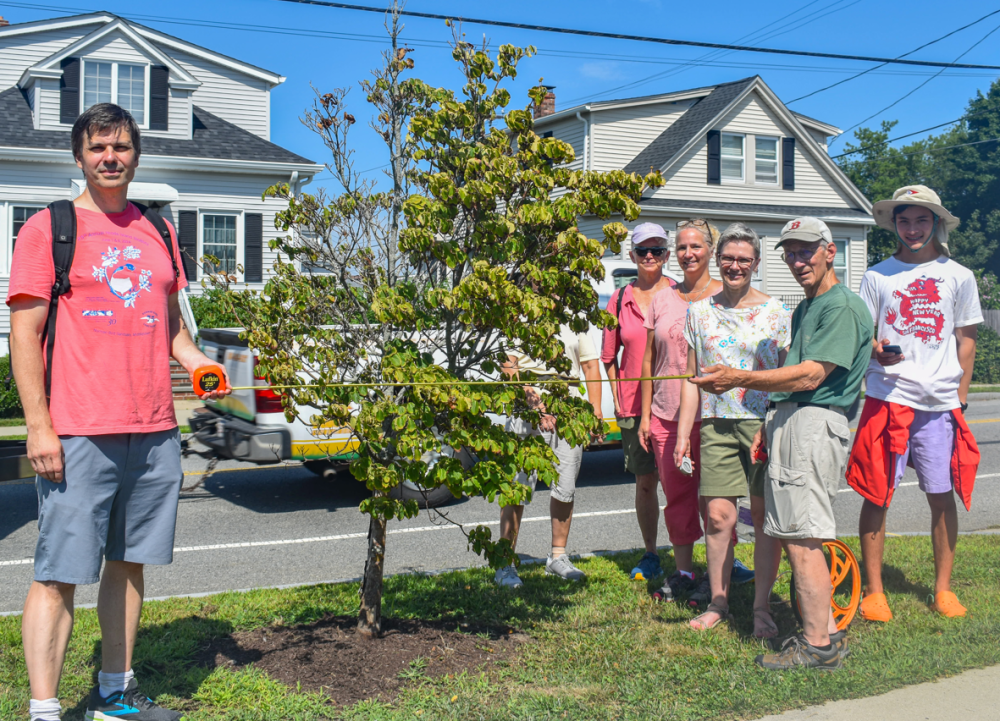Timber tally: Volunteers begin collecting data on Dartmouth trees
Making their way down Dartmouth Street, Tree Committee member Adam Korejwa and his group of volunteers stopped at each of the public trees to measure and take data for the start of the Pilot Tree Inventory Program.
The program was established to create a record of the town’s public trees in order to help with long term management and identify any issues such as in regard to pathogens and diversity.
Eleven volunteers got together early Saturday morning, Aug. 3 to hit the first of three sites for the pilot. The first site focused on the area around the Dartmouth Council on Aging, including Rogers Street and Dartmouth Street.
“Because this is the pilot, we are doing a lot of experimenting and discovering different things with the software and the equipment and we’re all getting used to using the different pieces of equipment,” Korejwa said.
Beyond some difficulties understanding what some of the fields are asking for, Korejwa said the group has seemed to have “picked it up pretty quickly.”
The pilot is using i-Tree, a tool designed by the USDA Forest Service, which helps value ecosystem services, including energy use, flood amelioration and carbon capture, according to Korejwa. Each of these services is given a dollar amount to clues the town in on that individual tree’s value.
“It also helps with identifying areas that maybe need more attention, so we just noticed there’s a number of trees right here [on Dartmouth Street] that are not doing particularly well,” he said.
It also has already begun to help the group understand the diversity of trees in the area, which may need to be addressed in the future due to the effects it can have on pollinators and birds, Korejaw added.
There are a lot of “ornamental non native” trees on Dartmouth Street, with almost all being one species of cherry, he said.
When the pilot is over, the data collected can be combined with satellite imagery to help identify heat islands and forecast into the feature to see how the trees will affect the area as they grow, according to Korejwa.
Additionally, he said the group could combine the information with census data, which could reveal more about the town.
“All of this information together can help us address some of the things that we expect to come from climate change, but also help just with diversity of insects and pollinators and things like that,” Korejwa said.
The group plans to go out at least two more times before the end of September and continues to look for volunteers. Those interested should contact Korejwa at akorejwa@yahoo.com. No prior knowledge or experience is necessary.












